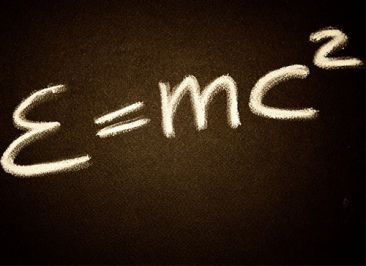 The mind of Albert Einstein, the phenomenal theoretical physicist of the early 20th Century, was nothing short of incredible. We have Einstein to thank for such things as the Theory of General Relativity, the Theory of Special Relativity, and perhaps the world’s most famous equation, E=mc2. Without question, Albert Einstein is one of the most famous and influential scientists in the modern era.
The mind of Albert Einstein, the phenomenal theoretical physicist of the early 20th Century, was nothing short of incredible. We have Einstein to thank for such things as the Theory of General Relativity, the Theory of Special Relativity, and perhaps the world’s most famous equation, E=mc2. Without question, Albert Einstein is one of the most famous and influential scientists in the modern era.
But what were the religious beliefs of the man whose name is synonymous with ‘genius’? Did Albert Einstein believe in the Abrahamic God? Was he unsure? Or was Albert Einstein an atheist?
Well, the answer is... complicated. Einstein once said that the question of God is “too vast for our limited minds”. Ultimately, Einstein could not conclusively answer ‘yes’ or ‘no’ to “the most difficult [question] in the world.”
Still, despite his reticence to come down on one side or the other of the God debate, Einstein generally said he was agnostic when asked about religion.
Spinoza’s God
Albert Einstein outright rejected the idea of an anthropomorphic, Abrahamic God, calling that viewpoint “alien… and even naive.” Einstein believed that religions are a collection of well-meaning fables intended to explain the unexplainable. In a letter to philosopher Eric Gutkind, Einstein said “The word God is for me nothing more than the expression and product of human weaknesses, the Bible a collection of honourable, but still primitive legends which are nevertheless pretty childish.”
Still, Einstein never claimed to be an atheist. “I am not an atheist… the problem [of God] is too vast for our limited minds”. Einstein preferred to be called agnostic, because he humbly felt his imperfect human mind could not conclusively know there is no grand designer. In an interview published in _Glimpses of the Greats_, Einstein said that “our limited minds cannot grasp the mysterious force that sways the constellations”. Ultimately, Einstein rejected all dogmatic belief systems as well as dogmatic atheism.
Einstein believed in the beauty of the natural world-- the music of the spheres. “My views are near those of Spinoza: admiration for the beauty of and belief in the logical simplicity of the order which we can grasp humbly and only imperfectly.” The Spinoza referenced was Baruch Spinoza, the 17th Century Dutch philosopher and an important early thinker of the Enlightenment remembered for his biblical criticism. For Spinoza, and therefore evidently for Einstein as well, God is the natural laws of the universe that create the natural beauty around us. Not an actual entity.
Library Analogy
Einstein once analogized man’s attempt to understand the universe to a young child entering a huge library for the first time. The child understands that they are looking at myriad volumes of books and knows that someone must have written them. But they do not have any idea who wrote the books or how they came to be written. Nor do they understand the languages in which the books are written. They do, however, recognize that the books are arranged in a definite order, even though they do not understand that order or how or why it came to be. they can only have dim suspicions about the whole library experience and its massive numbers of books arranged in a mysterious manner.
Such was Einstein’s view of the human mind and its inherent inability to grasp the universe, no matter what education and training it receives. We observe the universe, or at least the visible part of it; we observe that it seems to obey certain laws; we can “discover” those laws and develop an understanding of how they work; but our minds do not have the capacity to conceive of or understand how the universe and its laws got there in the first place.
Other 20th-Century Greats
Einstein was content with his imperfect knowledge and humble in his lack of understanding. But how did the rest of the 20th century’s brightest minds think? Well-- many outright rejected religion. Stephen Hawking, who passed away in 2018 from amyotrophic lateral sclerosis (ALS), was an outspoken atheist. In his final book _Brief Answers to the Big Questions_, Hawking said “there is no God… No one created the universe and no one directs our fate. This leads me to a profound realisation: there is probably no heaven and afterlife either. I think belief in the afterlife is just wishful thinking.” Hawking proposed that the afterlife is the positive stamp we leave on the world and the genes we pass along to our children. But he believed that heaven is a fairytale.
Hawking and Einstein are not the only renowned scientists to have a disbelief in God. Marie Curie, famed physicist and chemist and the first female Nobel Prize winner, was also an atheist. Enrico Fermi, the creator of the world’s first nuclear reactor, was agnostic. Astronomer and astrophysicist Carl Sagan held religious beliefs very close to Einstein’s.
Ultimately, Einstein’s religious skepticism was in line with many of his scientific contemporaries. Still, Einstein was able to find spiritual wonder in the beauty of the natural world. Perhaps Einstein’s beliefs can be summed up in this single quote: “The most beautiful emotion we can experience is the mystical. It is the power of all true art and science. He to whom this emotion is a stranger, who can no longer wonder and stand rapt in awe, is as good as dead.”
Add Your Comment